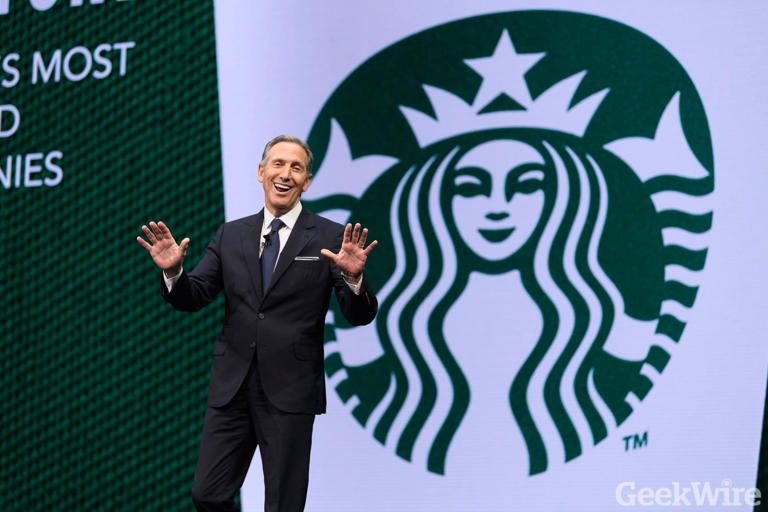Howard Schultz, the visionary leader behind Starbucks’ exponential growth and global success, has offered invaluable insights to address recent challenges facing the renowned coffee giant. In the wake of disappointing quarterly results that saw Starbucks’ shares plummet by over 12%, Schultz took to LinkedIn to share his recommendations for steering the company back on course.
Central to Schultz’s recommendations is the need for Starbucks to undergo a comprehensive reevaluation of its go-to-market strategy. He advocates for a strategic realignment that prioritizes enhancing the overall customer experience, particularly in the realm of mobile ordering. Schultz emphasizes the crucial role of senior leaders, including board members, in engaging directly with Starbucks employees, known as partners, who are instrumental in delivering the brand experience. By fostering closer collaboration and communication with frontline staff, Schultz believes Starbucks can gain valuable insights and drive meaningful improvements in its operations.
At the heart of Schultz’s suggestions lies a call to reinvent Starbucks’ mobile ordering and payment platform, a pioneering initiative that has been integral to the company’s digital transformation journey. While Starbucks was an early innovator in mobile order-ahead technology, recent challenges such as long wait times and product unavailability have dampened the user experience. Schultz underscores the importance of revitalizing the mobile ordering platform to recapture its initial promise of convenience and efficiency while preserving the human connection that defines the Starbucks experience.
Schultz’s recommendations come at a critical juncture as Starbucks grapples with evolving consumer preferences and competitive pressures. The company’s early adoption of mobile order-ahead technology positioned it as a trailblazer in the food and beverage industry. However, maintaining relevance in an increasingly crowded market requires continuous innovation and adaptation. Schultz’s call for a renewed focus on the in-store experience reflects his unwavering commitment to Starbucks’ founding ethos as a “third place” — a welcoming environment that fosters community and connection.
In addition to addressing mobile ordering challenges, Schultz acknowledges other headwinds facing Starbucks, including a slowdown in loyalty program growth and economic uncertainties impacting consumer behavior. These multifaceted challenges underscore the complexity of the task ahead and the need for a holistic approach to revitalizing Starbucks’ business.
As Starbucks navigates these challenges, Schultz’s recommendations serve as a guiding light, reminding the company of its core values and principles. Schultz’s enduring passion for Starbucks and its mission shines through his thoughtful insights, reinforcing his status as a trusted steward of the brand’s legacy.
In conclusion, Howard Schultz’s suggestions provide a roadmap for Starbucks to navigate turbulent waters and emerge stronger than ever. By prioritizing the customer experience, fostering a culture of innovation, and staying true to its founding principles, Starbucks can reclaim its position as a beacon of excellence in the global coffee industry.
